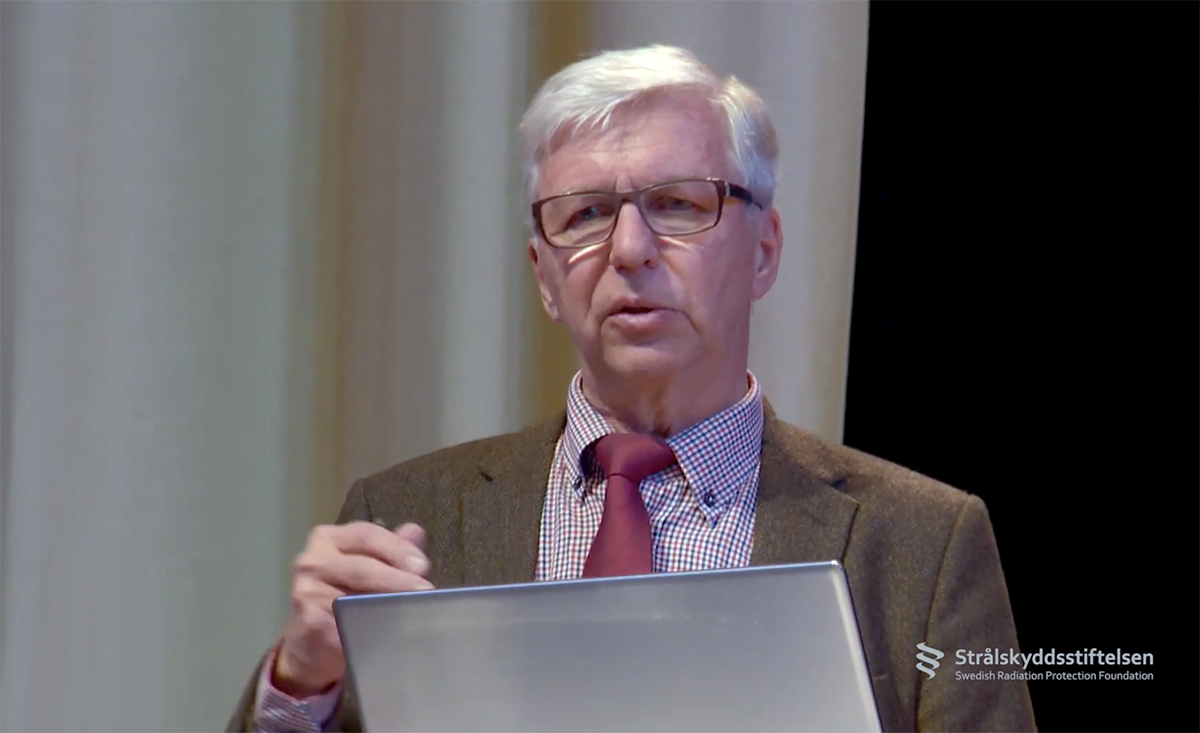Research on 5G radiofrequency (RF) radiation shows it can cause brain damage and possibly lead to dementia and Alzheimer’s disease, according to nine independent experts in the RF radiation field who published a new peer-reviewed article.
By Suzanne Burdick, Ph.D. This article was previously published in The Defender
Research on 5G radiofrequency (RF) radiation shows it can cause brain damage and possibly lead to dementia and Alzheimer’s disease, according to nine independent experts in the RF radiation field.
In a peer-reviewed article published last week in the Annals of Clinical and Medical
Case Reports, the experts called on authorities to heed the voices of the RF scientific community by establishing a “more stringent regulatory framework” on RF radiation and by halting the rollout of 5G technologies — including smart meters and 5G cell towers — until a team of “qualified scientists independent of industry” review the risks of the technology.
“The situation is absurd,” said Mona Nilsson, managing director of the Swedish Radiation Protection Foundation and lead author of the article.
Although the first two studies ever published on 5G’s effects on humans and animals reported serious adverse health effects, government authorities and telecom companies continue to put 5G cell towers and smart meters on and around people’s homes, Nilsson told The Defender.
Dr. Lennart Hardell, a leading scientist on cancer risks from radiation and co-author of the article, told the Defender, “I think it is time to have an ethical discussion.”
“What kind of society should we have?” asked Hardell, an oncologist and epidemiologist with the Environment and Cancer Research Foundation who has authored more than 100 papers on non-ionizing radiation. “Is it possible for the government to expose people to hazardous pollution in their own homes and you can’t escape?” he asked.
From an ethical point of view, that’s a very problematic societal situation, Hardell said.
So much research and ‘still nothing happens’
Hardell, Nilsson and their co-authors are leaders of independent organizations in Norway, Sweden, Denmark and Finland that focus on RF radiation.
They said the first study on 5G’s effects showed people experienced a plethora of symptoms — including severe sleep disturbances, dizziness, skin complaints, concentration problems, tinnitus, impaired short-term memory, confusion, fatigue, tendency toward depression, heart and lung symptoms and heart palpitations — days after a 5G cell tower was installed above their apartments.
The second 5G study showed rats exposed to 5G had an increased incidence of damage to neurons and increased oxidative stress in the brain.
These effects could eventually lead to degenerative brain diseases, such as dementia, Alzheimer’s and other neurological diseases, the authors said.
Nilsson said there are many earlier studies showing detrimental effects from RF radiation on the brain and nervous system.
According to a compilation by Henry Lai, Ph.D., a professor emeritus of bioengineering at the University of Washington, 244 studies between 2007 and 2022 showed negative neurological effects from RF radiation, Nilsson said.
“We have so much research and we have so many scientists that are raising their voices louder and louder — and still nothing happens because those institutions that have influenced the authorities … are captured by the industry,” Nilsson said.
Hardell and Rainer Nyberg, Ph.D., a professor emeritus of education and welfare studies at Åbo Akademi University in Finland and a co-author on the article, launched in 2017 the 5G Appeal, which asks policymakers to halt 5G deployment due to the risk of serious human health consequences until the risks have been investigated by scientists with no ties to industry.
As of Jan. 10, 430 medical doctors and scientists from around the world have signed the 5G Appeal.
Despite the accumulating scientific evidence of harmful effects, authorities “continue to ignore the increasing evidence of clear risks,” the authors said in their article.
Regulatory authorities claim current guidelines are sufficient to protect people from harm. But they rely on a “limited group of experts” — who are not representative of the scientific community at large — to support their position, according to the authors.
Moreover, the majority of these experts have “ties to the telecom companies,” the authors said.
What’s needed to fix the problem?
The authors said a new committee comprised of qualified scientists independent of the industry is urgently needed for a sound scientific evaluation of 5G.
Until then, “the 5G rollout must stop,” they said.
5G Rollout a ‘violation of human rights’
Given that 5G RF radiation levels are well above levels known to be harmful to human life and wildlife, the author considered it “a violation of human rights to impose this harmful radiation on people in their own homes without their informed consent.”
“This is a clear violation of human rights [that is] a consequence of the corruption of the science and the experts who have the role … of evaluating the science,” Nilsson said.
Hardell said he was pessimistic that regulatory authorities would heed the advice he and his co-authors offer in their latest article.
“The industry and the politicians … have decided, ‘No problem, so let’s go on,’” he said.
Nonetheless, Hardell said the article — and the 5G Appeal — are important historical documents showing that scientists warned about the health effects of 5G.
Plus, he said, it’s important that scientists continue writing on the topic — because how can they do otherwise, as ethical human beings?
The case reports published by Hardell and Nilsson on 5G’s effects showed that people had to leave their homes to get relief from their symptoms, Hardell emphasized.
“Do we really have an environmental pollutant that’s so strong or hazardous that people have to leave their own homes? I mean, how can we tolerate that?” he asked.
Hardell said he was especially concerned about those who are poor.
The individuals featured in the case reports had the means to relocate for the sake of their health, but most people don’t have the economic resources to do that, he said.



